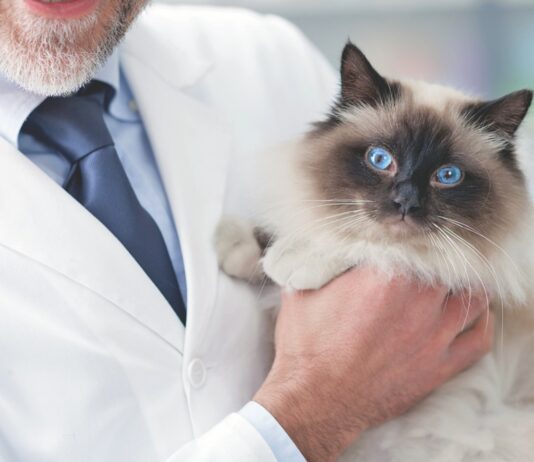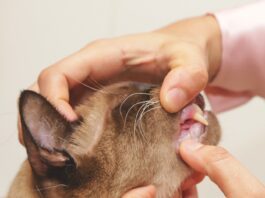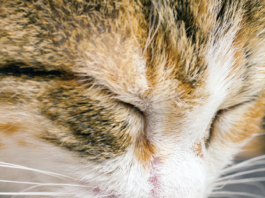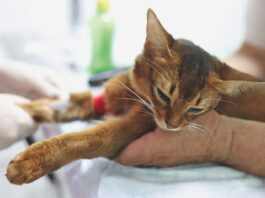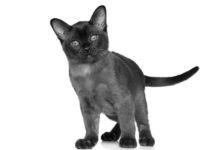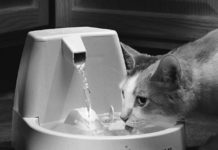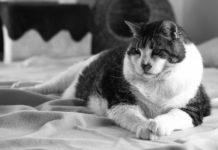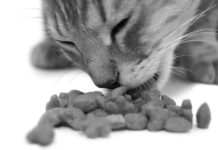When They Ingest Non-food Objects
Your cats playing with shoelaces or nibbling on an old sweater may look YouTube-worthy, but the results can be decidedly different. If he ingests an odd object, it can lead to life-threatening internal blockages. In veterinary medicine, eating non-food items is known as pica.
Study Investigates Stem Cell’s Role in Healing
Studies on kidney disease at Colorado State are focusing on whether stem cells can reduce kidney inflammation in cats. Any cat over 10 is likely to develop kidney disease, and by age 15, Im generally very surprised if it hasnt, says researcher Jessica Quimby, DVM, Ph.D., ACVIM.
Special Renal Diets Can Lengthen Lives
Chronic kidney disease is common in older cats, with nearly a third of them over 12 affected and the prevalence increasing with age. The disease is incurable, involving the gradual loss of kidney function; however, owners can help slow its progression.
Sounds Linked to Seizures in Older Cats and More
An evaluation of 96 cats medical records and owner questionnaires suggests that some high-pitched sounds can cause seizures in older cats. At the same time, the study uncovered a mystery: Half the evaluated cats were deaf or hearing impaired, according to their owners. How did they hear the sounds?
Sounds Linked to Seizures in Older Cats – and More
An evaluation of 96 cats medical records and owner questionnaires suggests that some high-pitched sounds can cause seizures in older cats. At the same time, the study uncovered a mystery: Half the evaluated cats were deaf or hearing impaired, according to their owners. How did they hear the sounds?
Reducing the Risk of Lymphoma
Lymphoma is the most common form of cancer in cats and unfortunately one of the most deadly. Although it has no cure, vaccinations against two viruses linked to the cancer can reduce your cats risk of developing the disease.Feline lymphomasarcoma is a malignant cancer of lymphocytes, cells in the immune system that travel the body through the lymphatic system - the network of tissues and organs that influences virtually every aspect of a cats health. Lymphoma can arise in lymph nodes as well as organs, including the spleen, liver, intestinal tract and skin. The disease can sometimes lead to tumors; however, the cancer usually involves the blood-forming organs and lymph tissue.
Multiple Organs Can Be Affected
Symptoms of lymphoma vary, depending upon the part of the body affected. In some cats, the disease is multi-centric, meaning that multiple organs are affected. This type of cancer tends to strike middle-aged and older cats who are usually not infected with FeLV. In cases of more localized lymphomas, the affected sites and their symptoms include:
TWO CRITICAL FACTORS IN FEEDING: PORTION CONTROL AND BODY CONDITION
Determining how much to feed your cat comes down to your portion control and his body condition, according to nutritionist Joseph Wakshlag, DVM, Ph.D., at Cornell.
Short Takes: September 2015
Cute cat videos are all over the Internet and morning TV news shows, but to judge by a national survey of 1,023 people by PetSmart Charities, opinions about cats and their owners remain divided. A majority of respondents believe cats are intelligent, loving, cuddly and attractive but also invoked stereotypical adjectives such as moody, stubborn, aloof and grouchy. (You can bet grouchy cats have legitimate reasons for their mood, such as illness, pain or stress.)
The Impact of Those New Food Labels
By the end of the year, almost all pet food labels will provide information on calories per cup as part of the growing movement in veterinary medicine to counter pet obesity. The change has been several years in the making and would seem make it easier to feed our cats, but just like the challenge of deciphering the terms on labels - guaranteed analysis, ingredients vs. nutrients and total crude protein - determining the calories might not be simple. Nutritionist Joseph Wakshlag, DVM, Ph.D., at Cornell University College of Veterinary Medicine offers one example: The average indoor cats diet should be based on resting energy, similar to a human couch potato who watches TV most of the day. The problem is that pet food manufacturers recommendations are based on a theoretical activity level that doesnt exist for most indoor cats.
Evaluating a Transdermal Appetite Stimulant for CKD
The drug mirtazapine, used to treat depression in people, has a surprising side effect in pets: It can stimulate appetite and, in some cases, control nausea and vomiting, which are signs of chronic kidney disease (CKD) in cats.
Three Common Myths About Spay and Neuter
Some reasons to avoid spaying or neutering pets are based on misinformation, including:

